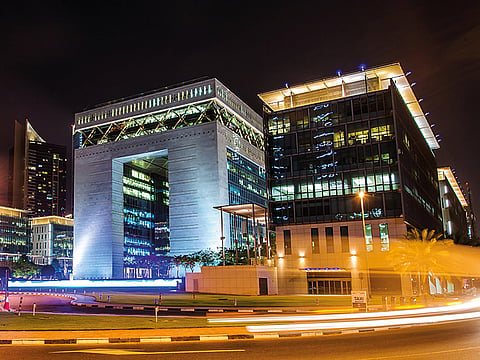Central Bank amends rules on loan transfers
UAE president also issues decrees on FDI, debt collection

Dubai: The UAE Central Bank is amending rules on loans given out to individual clients across the country, and specifically on the transfer of loans from one bank to another.
As per a decision to change rules on retail-banking and on banking loans and other services to individual clients, banks and financial services companies are obligated to offer reduced interest rates when a customer is transferring a loan between banks. This is instead of increasing the repayment period for customers.
The move comes after a decision issued by the Central Bank’s board of directors and published in the Official Gazette. It also comes amid a rising interest rate environment as the US Federal Reserve (and hence, the UAE Central Bank) hikes rates, making borrowing more expensive.
Under the new law, customers may transfer their personal loan from any bank in the UAE in return for an early repayment commission not exceeding 1 per cent of the remaining amount of the loan, or Dh10,000, whichever is less.
Other UAE-based banks or financial services companies may accept loan transfers under certain conditions, including their full commitment to the new rules, especially those on the loan amount, duration of repayment, and monthly instalments.
As for loans that were granted before the issuance of the new law, banks should still reduce interest rates rather than increase the repayment period.
The decision by the Central Bank on Tuesday is one of several decisions issued by the UAE government concerning financing and the economy.
Another key decision on Tuesday was a decree issued by UAE President His Highness Shaikh Khalifa Bin Zayed Al Nahyan that aims to promote Foreign Direct Investment (FDI) in the country and attract further investment.
The decree-law No. 19 of 2018 aims to position the UAE as a major hub for FDI, attract technology, and provide job opportunities in various fields.
According to the law published on Tuesday in the official gazette, an FDI unit is to be established under the Ministry of Economy, which will set up associated plans and work on their implementation following approval from the UAE Cabinet.
The FDI unit will also be responsible for establishing a database for UAE investments, including data on existing FDI projects.
Sultan Saeed Al Mansouri, the UAE’s Minister of Economy, said the decree will drive a leap in the country’s business environment. He pointed that increasing the UAE’s attractiveness for investors is a strategic national goal as it will help boost economic diversification efforts and increase liquidity.
Increasing the UAE’s attractiveness for FDI will also stimulate trade, improve the country’s economic environment, and help create job opportunities, he said.
The minister added that the UAE saw $10.4 billion in FDI in 2017, the highest in the Arab world. He said the UAE accounted for 36 per cent of FDI flowing into the Arab region, and had the second most FDI inflows in West Asia.
On Tuesday, Shaikh Khalifa also issued a separate federal decree (No. 15 of 2018) on the collection of revenues, including taxes, fees, and fines. Such revenues also include those from statement investments, proceeds of investment certificates issued by the state, and loans owed to the state, among others.
The decree aims to expedite claims and settlement procedures as well as collection of debt owed by creditors to the government. Under it, a unit will be established within the Ministry of Finance to collect debt.
“This decree enhances the federal government’s public revenue management framework and ensures the effectiveness of the claim, implementations, and settlement procedures, as well as debt collection in line with global best practices,” said Shaikh Hamdan Bin Rashid Al Maktoum, Deputy Ruler of Dubai and Minister of Finance.



